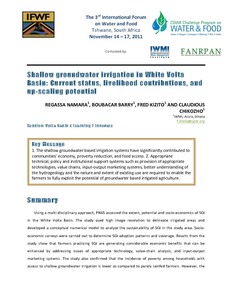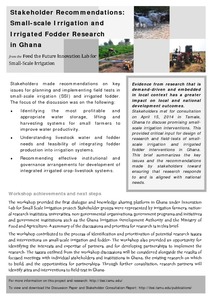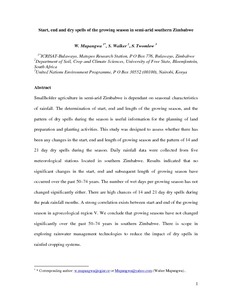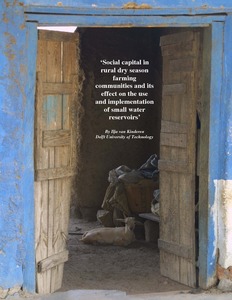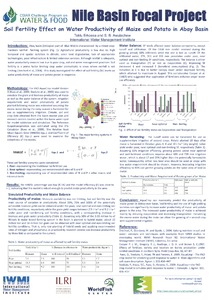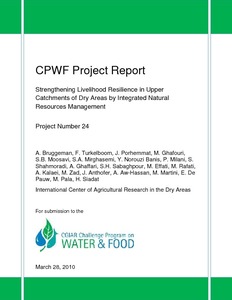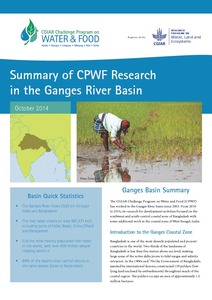Sistemas de producción agropecuarios sostenibles para los Llanos Orientales y la región Amazónica Colombiana : Informe técnico 1996
Sistemas de producción agropecuarios sostenibles para los Llanos Orientales y la región Amazónica Colombiana: informe técnico 1995
Shallow groundwater irrigation in White Volta Basin: Current status, livelihood contributions, and up-scaling potential
Stakeholder recommendations: Small-scale irrigation and irrigated fodder research in Ghana
Start end and dry spells of the growing season in semi-arid southern Zimbabwe
Soil fertility effect on water productivity of maize and potato in Abay Basin
Strengthening livelihood resilience in upper catchments of dry areas by integrated natural resources management
The Livelihood Resilience project evolved around the hypothesis that better integrated
management can improve the livelihoods of poor farming communities and increase the
environmental integrity and water productivity of upstream watersheds in dry areas. This
hypothesis was tested by researchers from different Iranian research and executive organizations
and farming communities in two benchmark research watersheds in upper Karkheh River Basin in
Iran, under the guidance of the ICARDA scientists. Participatory technology development, water,
Summary of CPWF Research in the Ganges River Basin
The CGIAR Challenge Program on Water and Food (CPWF) has worked in the Ganges River basin since 2003. From 2010 to 2014, its research for development activities focused on the southwest and south-central coastal zone of Bangladesh with some additional work in the coastal zone of West Bengal, India. In most polders the primary limiting factors are poor water management due to the lack of systematic operation of sluice gates; lack of separation of lands of varying elevations; and siltation of the irrigation and drainage canals within polders.
Summary of CPWF Research in the Limpopo River Basin
In 2009, the CGIAR Challenge Program on Water and Food (CPWF) set out to “improve governance and management of rainwater and small water infrastructure in the Limpopo basin to raise productivity, reduce poverty, and improve livelihoods resilience.” Over the following four years, CPWF, led by the Food, Agriculture and Natural Resources Policy Analysis Network (FANRPAN) and partners, coordinated five inter-connected research- for-development projects in the basin. The program


